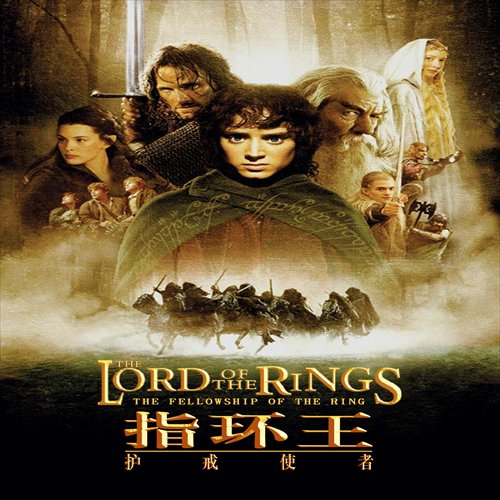Fantasy novels entrance fans

TV, films and online sites build communities for Chinese sci-fi lovers
As the third season of Game of Thrones, an adaptation of George R. R. Martin's A Song of Ice and Fire, wrapped up early summer, the HBO TV series left behind a trail of heated fans.
On popular social networking sites like douban.com and tieba.baidu.com, Games of Thrones groups have formed, with netizens discussing future developments and translating latter parts.
This American TV drama, adapted from George Martin's epic novel of the same name, is starting another fantasy trend in China, following The Lord of the Rings series.
Genre differences
In recent years, there have been a plethora of fantasy novels. Most fantasy novels are set in an imaginary world, like a giant bubble under the sea, or a world carried by a giant tortoise. These imaginary worlds are often connected to earth through a portal, such as a mirror or tree hole.
In the US, fantasy and science fiction occupies a large percentage of best sellers. Authors of top sellers gain both fame and high income. George Martin has a reported annual income of $15 million. J. R. R. Tolkien, famed writer of The Lord of the Rings, was selected as one of "The 50 greatest British writers since 1945" by The Times in 2008.
In China, these novels have loyal fans who translate works into Chinese without pay, organize fan events and sell related products.
Fantasy novel translator Li Lei told Life Weekly magazine said the reason British and American fantasy novels receive warm welcome in China is because of their storylines.
One of Li's translated works is American novelist Robert Jordan's The Wheel of Time series.
The first book, The Eye of the World, was published in 1990. All together, 11 books were published before Jordan death in 2007. Another two books in the series were written by Brandon Sanderson.
Liu Qiong, editor of the Chinese version of The Wheel of Time, told Life Weekly that the success of the books were due to the author's "painstaking efforts to conceive a world that connects both reality and the fantasy world."
"When I first read the book I felt the plot was developing too slowly. But [later I realized] the story and details capture you," Liu told Life Weekly.
Li Tianqi, translator of The Name of the Wind, another popular US fantasy novel written by Patrick Rothfuss, agrees that a good storyline is pivotal.
"It will unconsciously bring you into the world the author created," he told Life Weekly.
Li said that when she started reading The Name of the Wind for the purposes of translating it, she wondered if it would be as good as Harry Potter. Without realizing, she finished reading the whole book in one sitting.
"What attracts me is the connection between the fantasy world and reality," she said.
Finding hidden meanings
Li Lei, who has translated foreign fantasy books since 2000, graduated with a chemistry major from Peking University. Different from those who view fantasy novels only as entertainment, Li finds serious topics such as philosophy and anthropology explored in these works.
"Reading fantasy novels in the 1990s, I was educated about a clear division between evil and good," Li said in an interview with Life Weekly. "[But] in fantasy novels, good, evil and the neutral are always changing. Even gods can be good or bad. Killing off evil powers does not bring peace to the world. The three forces exist simultaneously."
Another example is The Lord of the Rings, which came out in the 1950s.
Written by J. R. R. Tolkien, professor at University of Oxford, the book separated itself from previous works in the same genre. Before, most fantasy novels were just adventure stories.
The Lord of the Rings film ends on an ominous note: "The power of the three rings is ending. The time has come for the dominion of man."
Li said that some people interpret the rings as the atomic bomb, which, when owned by humans, will bring disaster, according to Life Weekly.
The Lord of the Rings and Games of Thrones follow traditional plots in which a protagonist, after various personal hardships, saves the world.
The younger generation of novelists is trying to pave their own roads. Brandon Sanderson's Mistborn series discusses moral choices a human makes when he becomes a god.
"The book changed my view of the world," a Chinese fantasy writer Chen Qiqi, wrote on her Sina Weibo.
Sanderson's other book, Elantris, is more modernized. The protagonist assumes three contradictory powers, representing the past, present and future. The story parallels the powers, Li said. "These ideas began after the end of World War II, which Tolkien and his contemporaries could hardly think of," Li added, according to Life Weely.
Domestic efforts
Though British and American fantasy novels have gained widespread popularity, China has long produced its own fantasy nand sci-fi novels.
As early as the Warring States period (475-221BC) Shanhai Jing, or Classic of Mountains and Rivers, contained many ancient legends. Journey to the West, written during the Ming Dynasty (1368-1644), can be regarded as another fantasy novel.
The difference between Western and Chinese fantasy novels, according to Bu Feiyan, penname for Chinese fantasy writer Xin Xiaojun, is that the West has fixed ideas of non-human worlds, (take vampires and fairies for example), while China does not.
As Xin said, "without a fixed system, writers are free to form their own world, but it takes time and effort."
Chinese readers do not think highly of fantasy novels as Westerners do. Xin attributes this to an old preference for serious literature.
"In ancient times, people looked down on people who talked about ghosts and gods."
Global Times